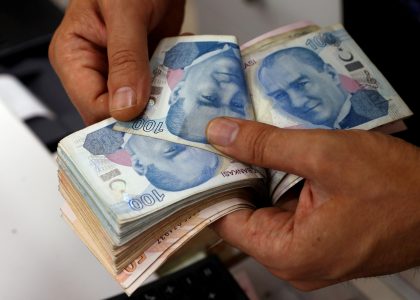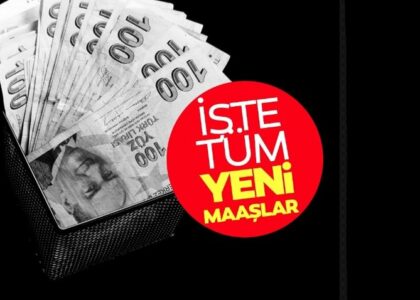The tide of buses registered in Bulgaria, crowded in the parking lot of the Edirne market, near the border, alone betrays the extent of the currency crisis in Turkey into which its president has led the country.
Once the capital of the Ottoman Empire between the 14th and 15th centuries, the city of Edirne, with its countless mosques, is now a giant market for neighbors in the Balkans and Bulgaria – themselves among the poorest in the Union. European.
From fruits and vegetables to low-end underwear, everything can be bought at low prices and piled up in the holds of buses.
“For us, it’s good but it’s really hard for the Turks”, agrees a guide, Daniela Mircheva, before getting back on the bus which brings her back to her home in Yambol in Bulgaria. “We were in the same situation 10, 12 years ago,” adds the almost fifty-something, referring to the global financial crisis of 2008. “It’s very difficult”.
“Half price”
The Turkish lira began a long descent into hell, steeply sloping from the autumn, touching new funds almost every day, a victim of the economic policy of President Recep Tayyip Erdogan who persists, against economic dogmas, to be favored falling interest rates despite inflation.
The currency crisis in Turkey is not stopping. This exceeded 21% in November over one year and the currency has lost nearly 45% of its value against the dollar since the start of the year.
Consumer prices are soaring for Turkish citizens. But Daniela Mircheva can cram even more cans of sunflower oil into her crowded bus of Bulgarian buyers looking for bargains. “It’s half the price compared to Bulgaria. It’s really a lot, a lot cheaper for us.”
But on the side of Turkish merchants, the mood is gloomy.
Currency crisis in Turkey : Humiliating situation
“It’s humiliating,” Gulsen Kaya admits behind piles of sweatshirts and winter clothes piled up on her counter. “Look what he did with Turkey!”
The head of state bet on a cheap pound that would encourage exports and turn Turkey into a sort of essential supplier on the world market, like China.
As Prime Minister and then as President, he relied on the popular classes to maintain his Islamo-conservative party, the AKP, in power since 2002.
Thanks to vigorous growth in the first decade, it also opened up Turkey to foreign investment. But for observers, economists and diplomats, the attitude of the Head of State is difficult to follow today.
“For me, if the people who run Turkey did what they had to do, the pound would come back to where it was before very, very quickly,” says Tinko Garev, a Bulgarian customer. “I am very sorry for the Turks because I understand what these low prices mean to them.”
Shocked
Bulent Reisoglu has been running the Edirne market since he moved to the current site, which resembles a large hangar 15 years ago. According to him, the number of customers has increased from around 50,000 per week to nearly 150,000 since the effects of the crisis were felt.
“The number of foreign customers has multiplied by four or five,” he says. However, traders earn less because the additional sales do not make up for the collapse of the Turkish lira.
“Our suppliers send us new price lists every week,” complains a trader, Utku Bitmez. “All the raw materials come from abroad, Europe, China and Italy,” he explains. “The price of products has doubled since last year.”
Mr Reisoglu, the head of the market, says he sees traders glued to their phones to monitor changes in exchange rates. “We are in shock,” he adds. “No one expected such a devaluation.”
Bulgarian customers themselves seem uncomfortable. “Locals can’t buy all of these things,” confirms Ilyana Todorova, who shops for clothes with her teenage daughter (thanks to currency crisis in Turkey). “For ordinary people, this is not good.”





